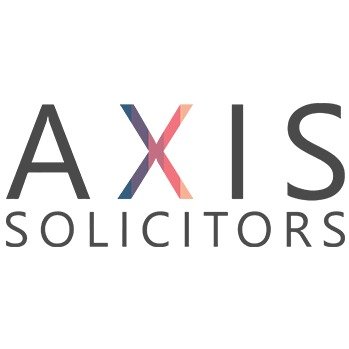Best Labor Law Lawyers in London
Share your needs with us, get contacted by law firms.
Free. Takes 2 min.
List of the best lawyers in London, United Kingdom
About Labor Law in London, United Kingdom
Labor Law, also referred to as Employment Law, in London, United Kingdom revolves around the rights, responsibilities, and obligations between employers and employees. The law covers a wide range of issues such as work contracts, working hours, rights to pay, discrimination, health and safety, and redundancy. The intent of these laws is to ensure a fair and safe working environment for all individuals.
Why You May Need a Lawyer
There can be various situations where you may require the assistance of a lawyer specialising in Labor Law. Some common scenarios may include: feeling you've been unfairly dismissed from your job, facing discrimination at work, or being made redundant without proper process or compensation. You may also need legal help if you're unsure about the terms of your employment contract, or if you have disputes related to pay, pensions, or working hours. In these cases, a lawyer can provide guidance and help safeguard your rights.
Local Laws Overview
One of the key elements of Labor Law in the UK is the Employment Rights Act of 1996, which lays out critical rights for workers, including protections against unlawful dismissal and the right to a written contract. The Equality Act 2010 outlines legal protections against discrimination at work on the basis of age, sexuality, gender, disability, religion, or race. Additionally, there are laws governing the minimum wage (National Minimum Wage Act), working time (Working Time Regulations), and health and safety (Health and Safety at Work Act), amongst others. These laws are applicable across the UK, including London.
Frequently Asked Questions
What is unfair dismissal?
Unfair dismissal is when you are dismissed from your job in a way that the Employment Rights Act 1996 defines as ‘unfair’. This could be because the reason for your dismissal is unfair, your employer did not follow a fair dismissal process, or if you were forced to resign (constructive dismissal).
What is constructive dismissal?
Constructive dismissal is when you're forced to resign because your employer's conduct has breached your employment contract. This could include reducing your pay without agreement or forcing unreasonable changes to work conditions.
What are my rights if I am pregnant or on maternity leave?
The UK law offers protection to employees during pregnancy and maternity leave. This includes safe work conditions, paid time for antenatal care, maternity leave of up to 52 weeks, and protection against unfair treatment or dismissal.
How are redundancy payments calculated?
Redundancy payments are calculated based on your age, weekly pay, and number of years in the job. You'll normally receive half a week's pay for each full year you were under 22, one week's pay for each full year you were 22 or older, but under 41, and one and half week's pay for each full year you were 41 or older.
What is the minimum wage in London?
The national minimum wage varies depending on age and whether the person is an apprentice. As of April 2021, for workers aged 23 and over, the minimum wage is £8.91 per hour.
Additional Resources
The government's official UK website can provide detailed information about your rights and legislation. Organisations like the Advisory, Conciliation and Arbitration Service (ACAS), Employment Tribunals, and trade unions can also offer guidance and support concerning labor law issues.
Next Steps
If you believe you need legal advice regarding Labor Law, the first step is to find a reputable lawyer or legal firm specializing in this area. Schedule a consultation to discuss your specific concerns. Always ensure you understand the advice given and ask for clarification if necessary. Also, check if you are eligible for legal aid or fee assistance.
Lawzana helps you find the best lawyers and law firms in London through a curated and pre-screened list of qualified legal professionals. Our platform offers rankings and detailed profiles of attorneys and law firms, allowing you to compare based on practice areas, including Labor Law, experience, and client feedback.
Each profile includes a description of the firm's areas of practice, client reviews, team members and partners, year of establishment, spoken languages, office locations, contact information, social media presence, and any published articles or resources. Most firms on our platform speak English and are experienced in both local and international legal matters.
Get a quote from top-rated law firms in London, United Kingdom — quickly, securely, and without unnecessary hassle.
Disclaimer:
The information provided on this page is for general informational purposes only and does not constitute legal advice. While we strive to ensure the accuracy and relevance of the content, legal information may change over time, and interpretations of the law can vary. You should always consult with a qualified legal professional for advice specific to your situation.
We disclaim all liability for actions taken or not taken based on the content of this page. If you believe any information is incorrect or outdated, please contact us, and we will review and update it where appropriate.

















